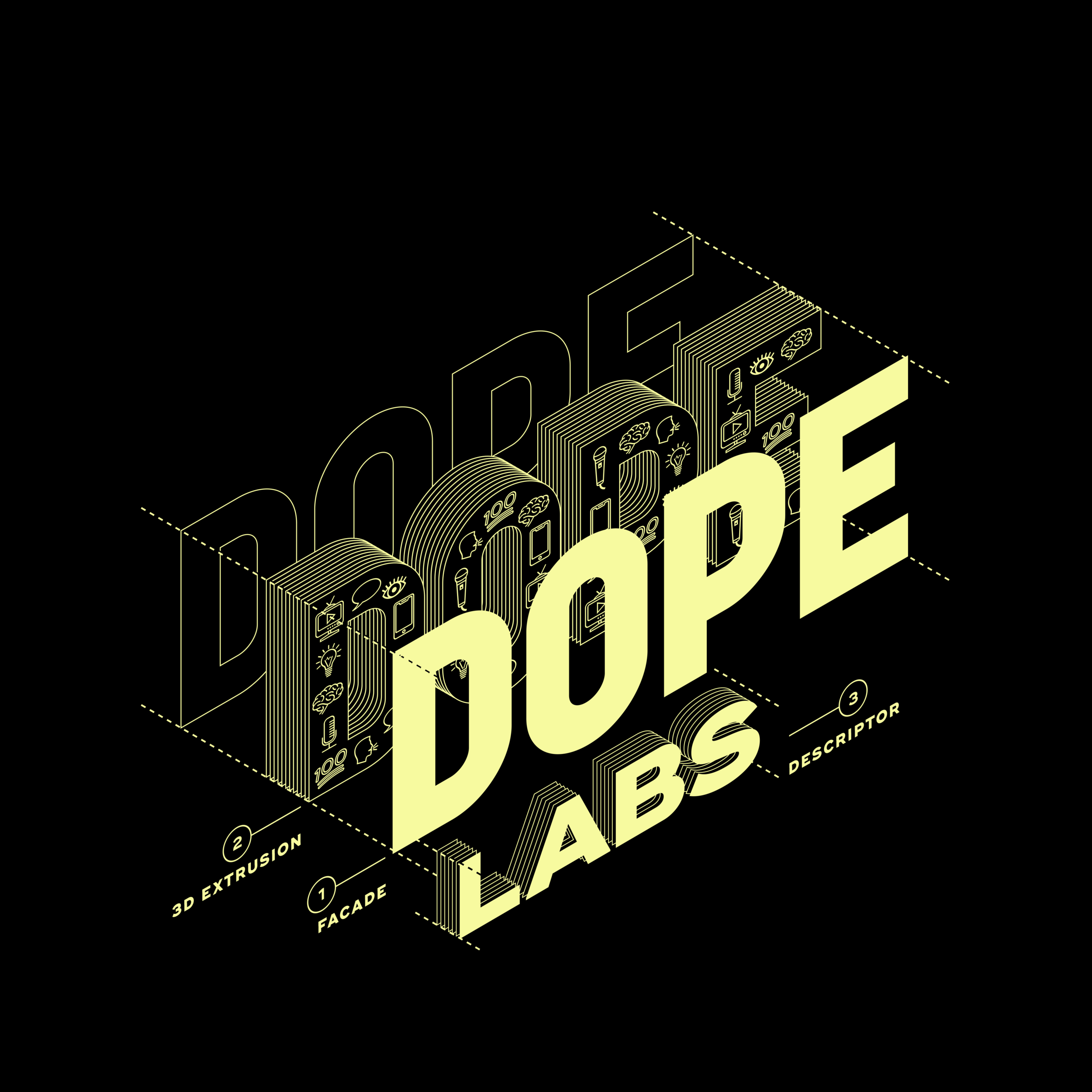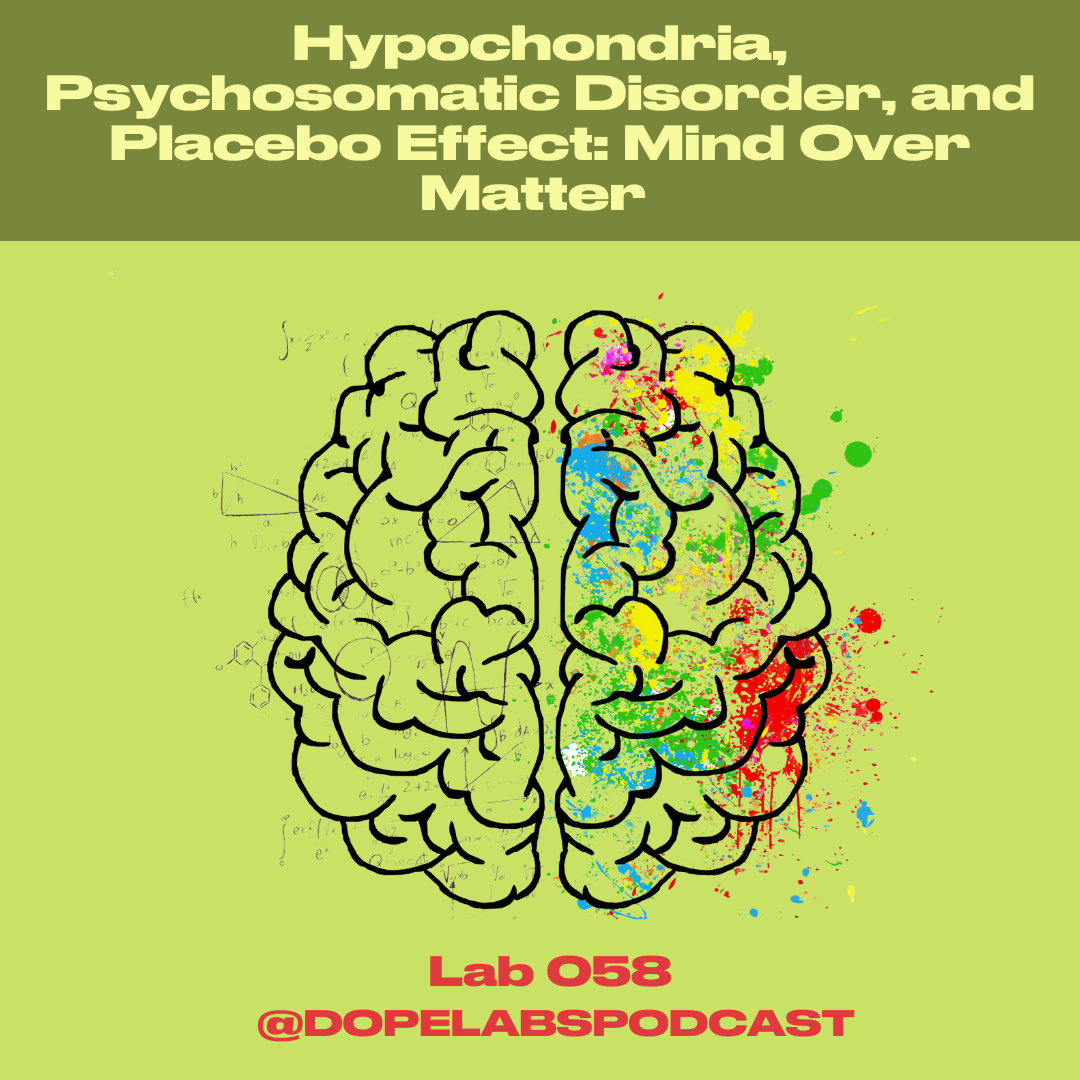Hypochondria, Psychosomatic Disorder, and Placebo Effect: Mind Over Matter – Lab 058
About This Lab
In this lab, we are talking all about psychosomatic disorders, what they are, how they function, and how they are diagnosed.
First thing’s first (I’m the realest)
Mind-body connection is super integral to the body
Our minds are constantly taking in info
there’s a mental component to every physical disease
How can the mind control the body?
psychosomatic effects= physical symptoms with or w/o psychological distress
hypochondria= psychological distress probably w/o physical symptoms
top down processing
the brain takes in a stimulus and makes an expectation so then when we come into contact with new stimuli, it’s being processed against the expectation
ex: saying ouch BEFORE you stub your toe b/c you already have an expectation stored in the brain
psychosomatic disorders are NOT the same as pretending. #periodt
your brain is rewiring itself
What does it mean to have a psychosomatic disorder?
anyone can have a psychosomatic disorder
the brain can tell you something isn’t right here, so something might not be right in the body. The mind-body connection is so important
ex: Simone Biles at the 2020 Olympics. Her mind said, “no,” and knowing that the mind controls the body, which she needed to do flips in the air, she chose herself and withdrew
pain is subjective
How do you identify someone with psychosomatic disorder?
symptoms and patterns don’t fit the biology
but diagnoses can take up to years
People with psychosomatic disorders deserve better treatment.
Big takeaway: if doctors can treat the pain, treat it.
Guest Expert
This lab’s guest expert is Dr. Suzanne O’Sullivan, consultant, neurologist and clinical neurophysiologist based at the National Hospital for Neurology in London. She is so dope, and has worked with patients on different spectrums of psychosomatic disorders. Read more here.
Transcript
You can follow along with the transcript here.


